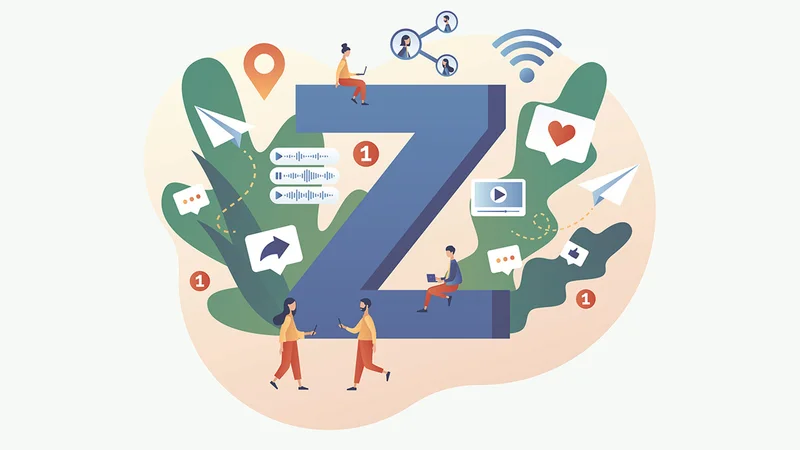The Gen Z Economic Revolution: Why They're Building a Different Future
You’ve probably seen the headlines, and they’re brutal. A staggering 84% of Gen Z say they’re delaying milestones to buy a house. There’s ‘no single fix’ for the affordability crisis, real estate exec says. The media paints a picture of a generation adrift, their dreams of the white picket fence dissolving into an economic fog.
When I first saw that number, I honestly just sat back in my chair, speechless. It felt like a eulogy for the American Dream. My initial reaction was one of profound sadness for a generation handed a broken ladder. But then, as I connected the dots with other trends I’m tracking, a different picture began to emerge. A much more exciting, and frankly, revolutionary one. What if this isn't a story about a dream being delayed? What if it's the story of a dream being completely dismantled and rebuilt from the ground up, right before our eyes?
The Great Deconstruction
Let's be clear: the financial reality is harsh. The typical first-time homebuyer is now 40 years old. The income needed to afford a median-priced home has doubled the average American salary. These aren't just numbers; they represent real-world stress and sacrifice. But look closer at the response. Gen Z isn't just passively waiting on the sidelines. They are actively hacking the system. They’re taking on side hustles, co-buying homes with friends, moving back in with their parents not in defeat, but as a strategic financial play.
This is the kind of creative problem-solving that defines a paradigm shift—or, to put it more simply, it's what people do when the old rules no longer apply. They don't just complain; they invent.
This impulse to rebuild extends far beyond real estate. Look at how this generation interacts with the commercial world. A brand like PacSun, a relic of my own mall-cruising youth, has had a massive resurgence. Why? Because they didn't just market to Gen Z; they invited them into the boardroom. They formed a youth advisory council, giving teenagers and twenty-somethings a real say in the products they create. As a result, PacSun taps Gen Z and Gen Alpha as advisors. As influencer Anna Sitar, who has 12 million followers, points out, the pandemic robbed this generation of control at a formative time. Now, she says, "Something we know we have control over now is where we put our money and attention."

This is the key. It’s not just about buying a pair of jeans. It’s about being part of the process. This desire for co-creation isn't a quirky consumer preference; it's a direct reflection of a generation that has been forced to become the architects of their own lives. If you have to design your own path to financial stability, why wouldn't you demand the same collaborative power from the brands you support?
Architects of a New Reality
This isn’t just a new trend; it’s a new operating system for society. The housing crisis is the catalyst forcing them to rewrite the code for what a "successful life" even looks like—and the speed of this is just staggering, it means the gap between the old model and the new one is closing faster than our institutions can even comprehend. The old, linear path—college, marriage, house, kids—was a product of a specific post-war economy. It was its own radical redefinition of the American Dream back then, creating suburbia out of farmland. What we're seeing now is just as profound.
Gen Z is building a modular life. A life where career, homeownership, and family aren't sequential steps on a ladder but interchangeable blocks you can arrange in whatever order makes sense for you. Maybe you start a business with a friend you co-own a duplex with. Maybe you prioritize travel and freelance work for a decade before even thinking about a mortgage. The "dream" is no longer a static image; it's a dynamic, personalized project.
Of course, this raises a crucial question for the rest of us. What is our responsibility in this transition? Our systems—from 30-year mortgages designed for a single breadwinner to corporate structures that reward linear careers—were built for a world that is rapidly vanishing. We can either be the architects of the new bridges they need, or we can become the curators of obsolete museums. The choice is ours.
Do we create more flexible pathways to ownership? Do we build companies that value collaboration and input as much as PacSun does? Can we see this shift not as a failure of the next generation to launch, but as an invitation for all of us to imagine something better?
This Isn't a Crisis; It's a Blueprint
Forget the narrative of the "lost generation." It’s lazy, and it misses the point entirely. This isn't a generation delaying their lives; they are redesigning the very definition of a life well-lived. They are trading a pre-packaged dream for a custom-built reality, one that values flexibility, community, and authenticity over rigid, outdated milestones. They are showing us that when the old map no longer leads anywhere you want to go, you don't just stop. You draw a new one. And frankly, it's a map I think we should all be following.
Tags: gen z
Zcash's 1,486% Rally: A Data-Driven Look at the Drivers and Its Sustainability
Next PostLockheed Martin: Its True Financial Standing and Future Trajectory
Related Articles
